Automotive
For over a century automobiles have been evolving as manufacturers constantly find ways to improve vehicle handling, efficiency, safety and performance. A key driver of these developments is electronics and electronic signal testing. In recent years the increased use of microprocessors, fast communications and sensor technology has led to advancements in breaking systems, traction control, and even accident avoidance. Modern cars now use electronic ignition systems to improve their performance and efficiency and some vehicles employ electronic motors, or hybrid designs, to help reduce the reliance on traditional engine fuels. Safety remains an industry priority and manufacturers undergo an extensive array of tests and inspections throughout the production process to ensure quality remains at satisfactory levels. Robotics is extensively used in the manufacturing process helping to speed up production, reduce costs and eliminate problems associated with human error.
The industry uses a diverse range of electronic components and systems, employs a wide range of production procedures and carries out an extensive amount of testing. To cover the broad range and nature of the electronic signals encountered in the automotive industry Spectrum offers an extensive range of digitizers and arbitrary waveform generators. The products are available in a variety of popular standards including PCIe, PXIe, PXI and LXI. They offer bandwidths from 50 kHz to 1.5 GHz, sampling rates from 100 KS/s to 5 GS/s, and resolution from 8 up to 16 bits. For in-vehicle testing, such as vibration analysis and data logging, Spectrum offers small, high-channel count products that are easily deployed and embedded into test systems. With both analog and digital inputs and outputs they are ideal for use in tests systems that monitor mechanical parameters and CAN communication. Spectrum's digitizerNETBOX products can also be used with an optional DC power supply making them perfect for mobile requirements. Digitizer cards can have from one to sixteen channels and up to sixteen cards can be linked together with Spectrum's StarHub system to create instruments with up to 256 fully synchronous channels making them suited to applications with multiple sensors and sensor arrays.
The cards also come with large on-board memories (up to 4 Gsamples/card) and advanced streaming and readout modes for capturing and transferring signals. Streaming over the cards fast PCIe bus to a storage array can allow the capture and storage of days of information. To allow easy integration into ATE systems Spectrum makes available software and instrumentation drivers that work with 32 bit and 64 bit versions of Windows and Linux operating systems. Programming of the cards is possible using a wide range of languages such as LabVIEW, LabWindows/CVI, C++, MatLab, Borland Delphi, Visual Basic, VB.NET, C#, J# and IVI. Spectrum's SBench 6 software can also be used to view and qualify signals. FFT's are available for frequency domain analysis and power measurements while parametric calculations help to determine key signal characteristics like amplitude, frequency, pulse width and period.
Typical automotive applications include mechanical testing, vibration analysis, ultrasonic inspection, data logging, component testing, RADAR ranging, telematics, engine performance and ignition monitoring, CAN communication monitoring, infotainment systems (RF, audio, video, navigation, etc.), and anti-lock breaking systems.
Matching Card Families
Related Documents
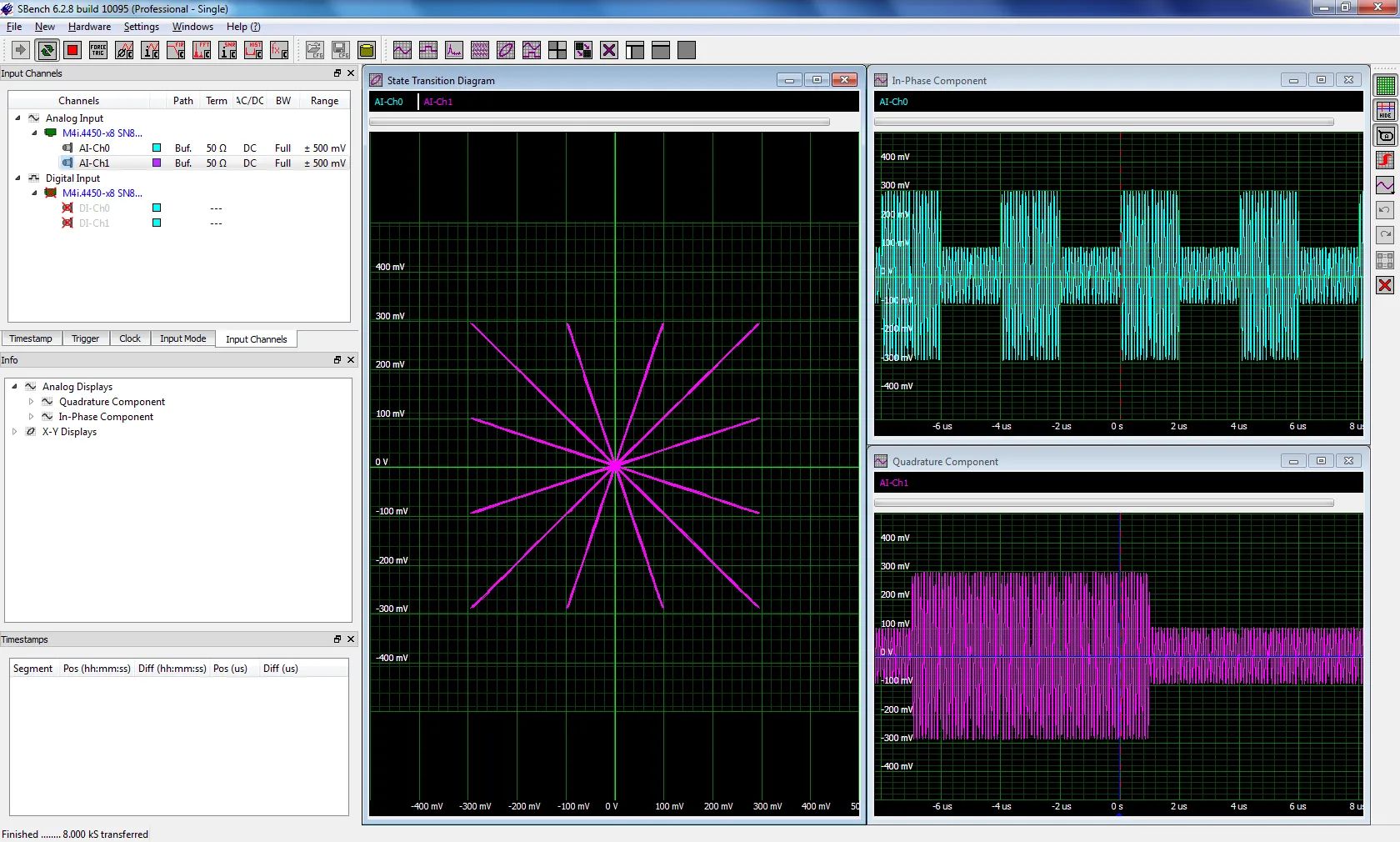
RF Measurements Using a Modular Digitizer
Modern modular digitizers, like the Spectrum M4i series PCIe digitizers, offer greater bandwidth and higher resolution at any given bandwidth than ever before. Although they are in the class of general purpose measuring instruments they are capable of many RF and lower microwave frequency measurements. This article focuses on some examples of common RF measurements that can be performed with these modular digitizers.
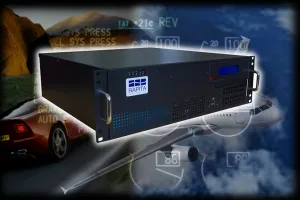
Case Study: Real-time high speed logger for embedded systems
CPU based embedded systems now play an increasing part in the monitoring and control of the mechanical and electrical components in many areas of our technological environment.
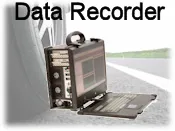
Case Study: Automotive Data Recorder
The request was for a complete solution for portable recording of dynamic mixed mode (analog and digital channels) data during test drive. The data should be replayed and analyzed later in Research and Development laboratory. A full working system including operation software was needed.
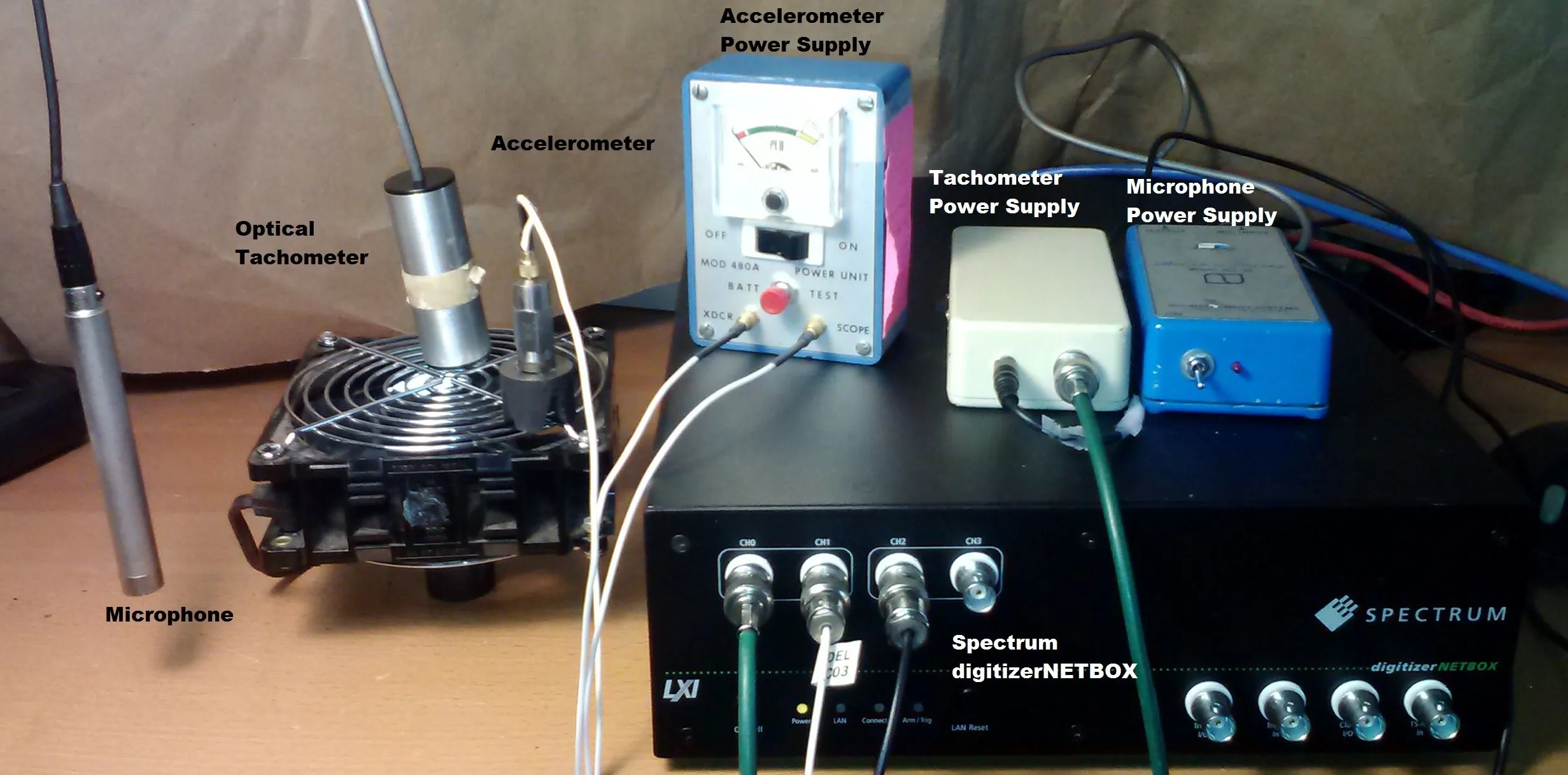
Mechanical Measurements Using Digitizers
Measurements on mechanical devices and systems using a modular digitizer requires the use of a variety of transducers or sensors in order to convert mechanical parameters such as force, acceleration, pressure, rotational speed, and their kindred into electrical signals you can measure. This article is a primer on making such measurements using a modular digitizer.
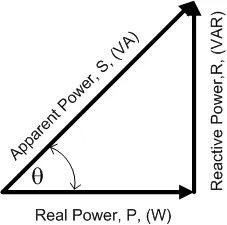
Power Measurements Using Modular Digitizers
Line power measurements are commonly required to evaluate the performance of devices or circuits. Modular digitizers can make these power measurements. Digitizers are voltage responding measurement instruments. They can also measure current using suitable current probes or current shunts.
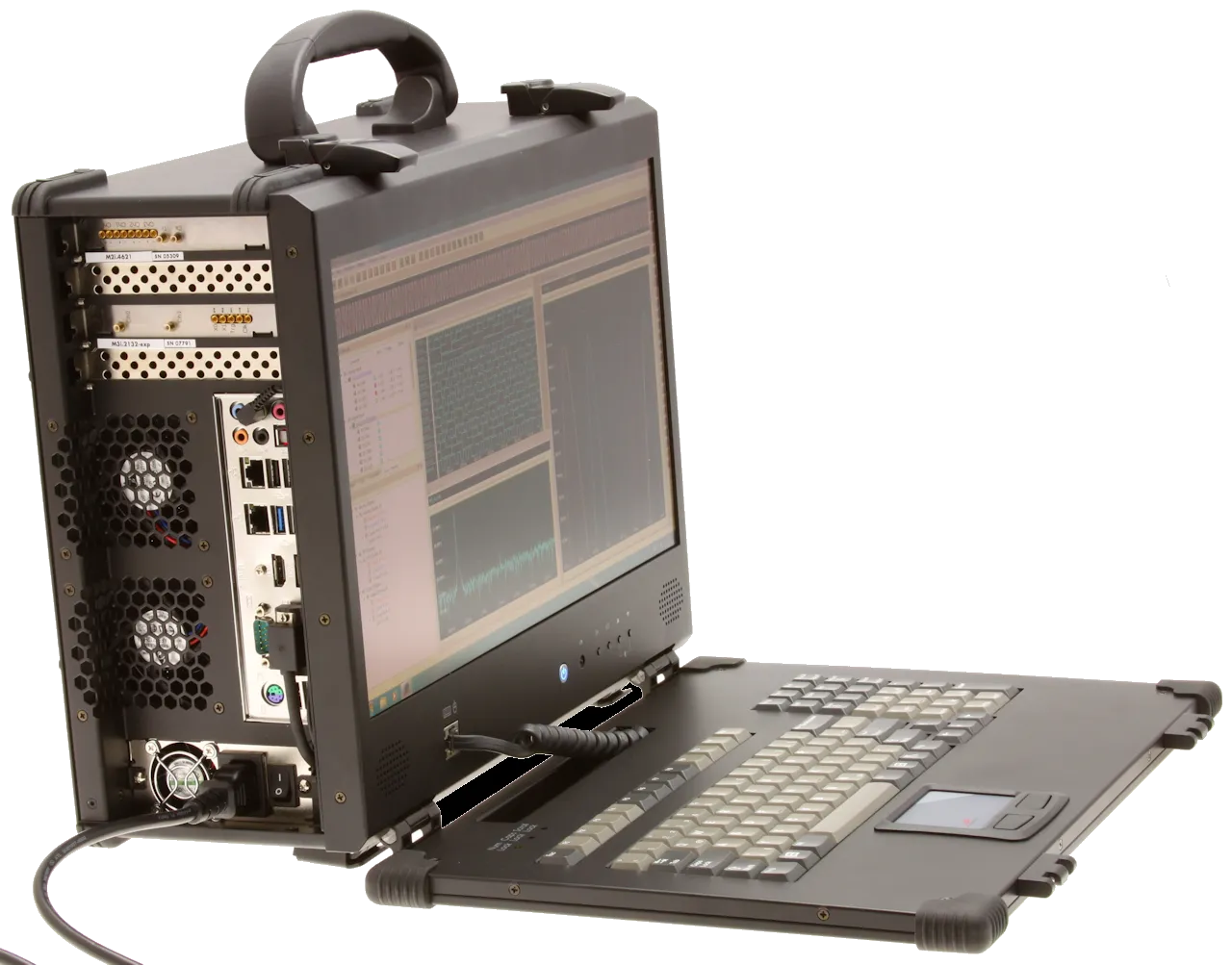
Vehicular Testing with Modular Digitizers
Modular instruments reduce the size of traditional instruments so that they fit on a circuit card. Multiple cards can be inserted into a frame with a common computer interface, power, and interconnections. Modular instrument frames include computers, using the standard PCIe interface, PXI test frames, or LXI based boxes. Generally, multiple cards are used and configured by the engineer into a test system. The system may contain multiple instruments, single instrument types with multiple channels, or a combination of both.

Case Study: Digitizers used for intelligent road-radar to detect wild animals
Every two minutes there is an accident caused by wildlife on German roads at a cost to the insurance industry of more than 600 million euros in 2015 alone. To address this, the Universities of Applied Sciences of Ulm and Heilbronn along with industrial partners have created "SALUS". With a mix of radar, optical cameras and infrared sensors plus neural networks, a machine-learning-system is designed to be able to differentiate between pedestrians, cars, bicyclists, motorbikes, deer, foxes, wild boar etc. predicting the behavior of these objects. The system then sends warnings to car drivers and other road users to prevent accidents. The data of the micro-Doppler radar is gathered by a Spectrum Instrumentation PCIe digitizer card M2p.5926-x4 that provides the required number of channels and bitwidth.
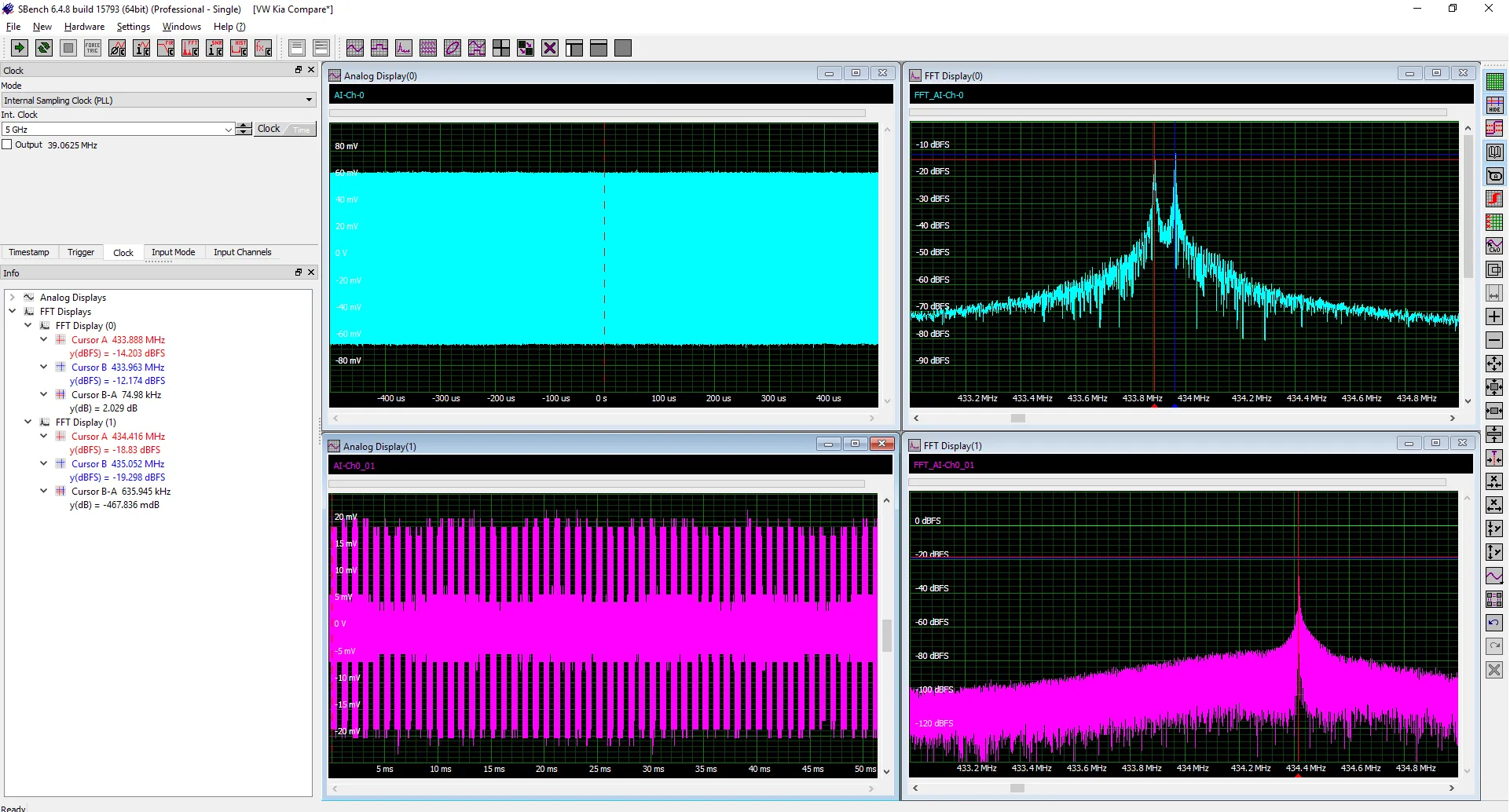
Characterization of Remote Keyless Entry device
Automotive technology is packing more functionality into every device. Consider the vehicle key fob, it has evolved from a simple mechanical key to a miniature electronics power house, incorporating remote key entry (RKE), remote starter, and keyless ignition. Remote key entry and remote starter use an ultra-high frequency (UHF) transmitter employing intelligent encoding to maintain security. Design verification and testing of the physical layer operation of these devices requires tools that can acquire and measure the RF signals of relatively long duration and do further processing to extract additional information. Modular digitizers are ideal measurement instruments for RKE measurements, a study of typical RKE measurement parameters will reveal the specifications required to select an appropriate modular digitizer.
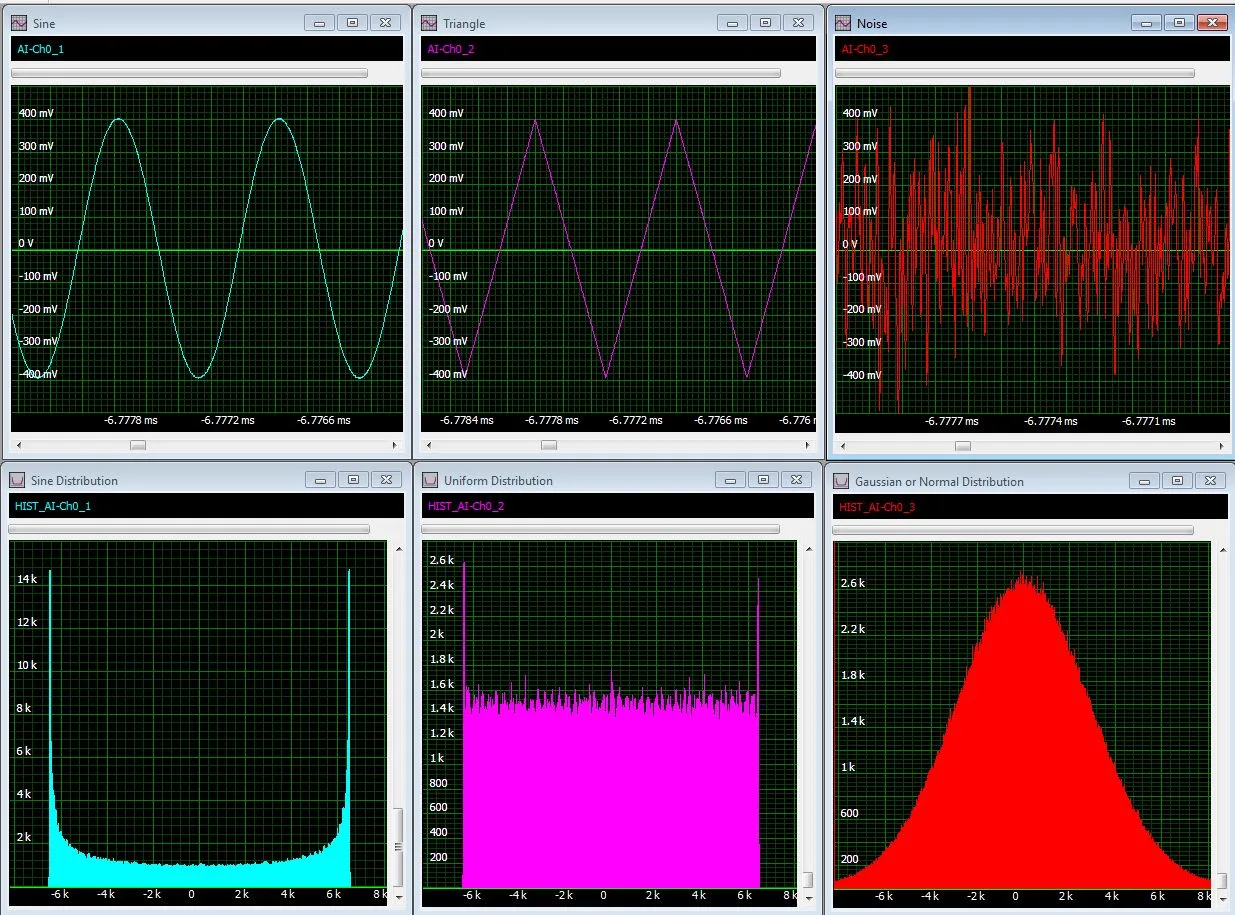
Signal Processing for Digitizers
Modular digitizers allow accurate, high resolution data acquisition that can be quickly transferred to a host computer. Signal processing functions, applied in the digitizer or in the host computer, permit the enhancement of the acquired data or the extraction of extremely useful information from a simple measurement.
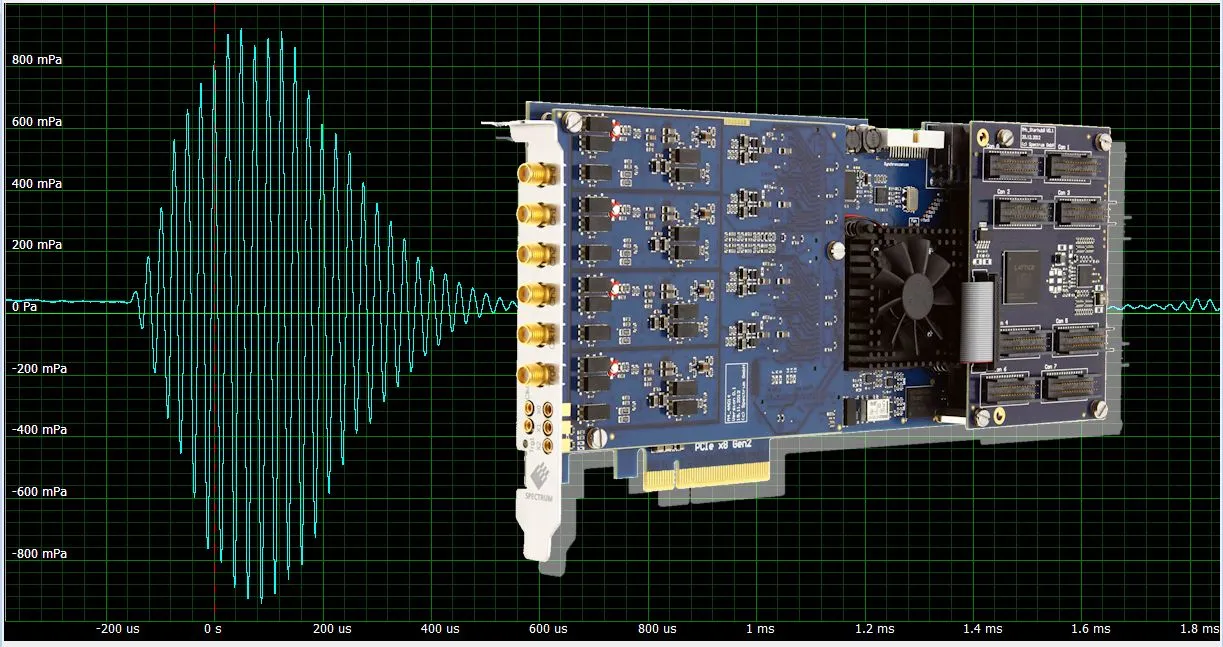
Ultrasonic Applications
The use of Ultrasonic products is increasing as new techniques and improvements in instrument performance constantly expand the range of applications. Spectrum digitizers are ideal tools for making ultrasonic measurements and can play a key role required in the development, testing and operation of these products. Spectrum digitizers and arbitrary waveform generators offer a wide range of bandwidths, sampling rates, and dynamic range to match the broad spectrum of ultrasonic measurement needs
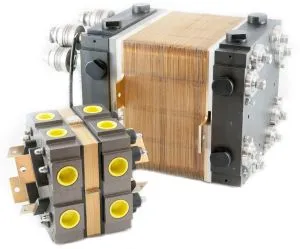
Case Study: Hydrogen Fuel Cell Test with Spectrum Digitizer
Hydrogen fuel cells will play an important role in cutting carbon emissions especially for mobile applications such as automotive and heavy-duty trucks and buses. Having water vapor as the only emission, the fuel is hydrogen that is abundant and can be made using renewable energy. Having created a computer model of a fuel cell, ZBT are using 8-channel digitizers M2i.4652 from Spectrum Instrumentation to analyze the performance of different fuel cells on a test bench.
Research Papers
Test Signals for Multifunction Vehicle Bus
Find out how the College of Electrical Engineering, Zhejiang University, Hangzhou, China employ a Spectrum Digitizer M3i.4142 and a AWG M2i.6021 to provide test signals for multifunction vehicle bus (MVB) protocol testing (main article in Chinese) by clicking on the link below:
Research Paper